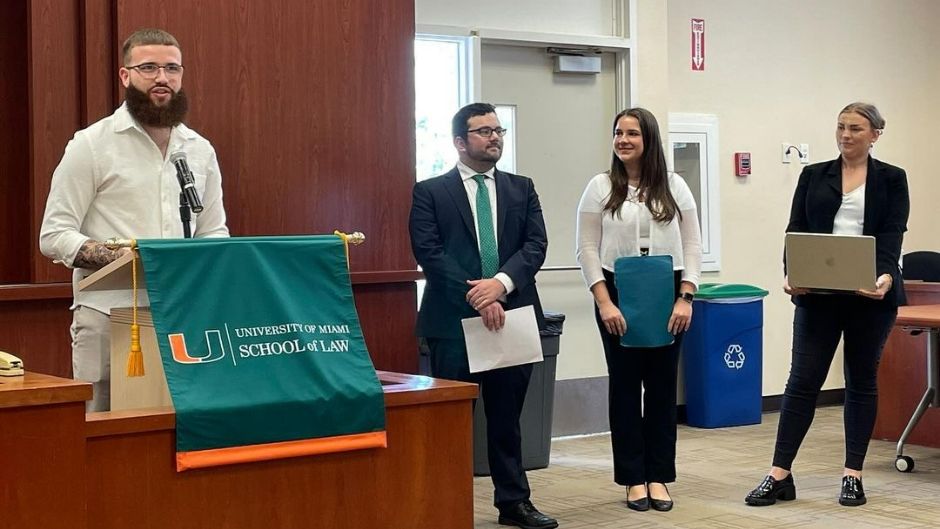Throughout March, Miami Law’s Race and Social Justice Law Review hosted a series of talks in their Lunch & Learn Series. At these three events, students heard from pillars of the legal advocacy community who shared thoughts and opinions on many different legal topics dealing with racial disparities in the criminal justice system.
“Many students come into law school wanting to help people,” editor-in-chief of the Race and Social Justice Law Review, Tim Mondloch, said, “so letting them interact with those doing exactly that can inspire them to keep pushing towards their goals.”
Founded in 2007, the University of Miami Race & Social Justice Law Review, formerly known as the Black Law Review, is a student journal committed to the promotion and publication of scholarly articles that address the legal, social, economic, and psychological issues that affect communities of color, as well as other groups affected by social injustice.
Mondloch’s hope for the series was to demonstrate to students the avenues that they can take within their legal education to improve the lives of others. In fact, the Review partnered with Miami Law’s HOPE Public Interest Resource Center, which organized a book drive during the duration of the series. The drive, which ran from March 5 to 27, collected gently used fiction and nonfiction books for women who are incarcerated in South Florida.
“As law students, we believe it is immensely important to give back and to help others educate themselves, especially individuals who are incarcerated with so few resources,” said symposium chair Ethan Goldberg.
Throughout the three events, discussions were held about racial disparities in the criminal justice system, the criminalization of the trans and queer community, and the state of public defense. Each talk allowed students to learn how they can address problems within the United States justice system now as law students as well as in long-form, systemic ways throughout their legal careers.
“These conversations are so important because they expose students to problems and solutions they may not have recognized before,” said Mondloch, who will be starting in a private firm as a litigation associate after graduation. “This series allows a space for students to formulate their own ideas and paths to solving these problems as they enter the legal profession.”
Read more about Miami Law’s law reviews.

